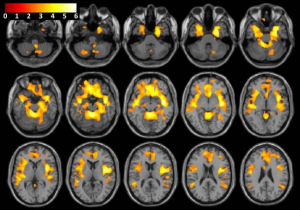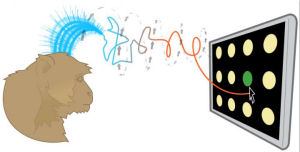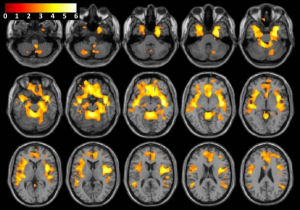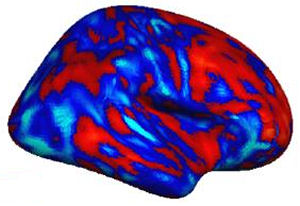
The scientists behind a novel study into reading say that when we immerse ourselves into a work of fiction, lingering changes occur in the connectivity of our brains. The intriguing new findings, by researchers at Emory University, have been published in the journal Brain Connectivity.
“Stories shape our lives and in some cases help define a person,” says neuroscientist Gregory Berns, lead author of the study. “We want to understand how stories get into your brain, and what they do to it.” His research, conducted over 19 consecutive days, used functional magnetic resonance imaging (fMRI) to examine the after-effects of reading a “gripping” narrative.
For the study, all the subjects read the novelPompeii, a 2003 thriller by Robert Harris that is based on the real-life eruption of Mount Vesuvius in ancient Italy. Berns says he chose this book because of its page-turning plot. “It depicts true events in a fictional and dramatic way,” he explained. “It was important to us that the book had a strong narrative line.”
For the first five days, the participants came in each morning for a base-line fMRI scan of their brains in a resting state. Then they were given nine sections of the novel, about 30 pages each, over a nine-day period. They were asked to read the assigned section in the evening, and come in the following morning. After finishing the assigned reading, the participants underwent an fMRI scan of their brain in a non-reading, resting state. After completing all nine sections of the novel, the participants returned for five more mornings to undergo additional scans in a resting state.
Berns says the results showed heightened connectivity in the left temporal cortex, an area of the brain associated with receptivity for language, on the mornings following the reading assignments. “Even though the participants were not actually reading the novel while they were in the scanner, they retained this heightened connectivity,” he noted. “We call that a ‘shadow activity,’ almost like a muscle memory.”
The researchers found the changes persisted for at least the five days of scanning after the participants completed the novel. “It remains an open question how long these neural changes might last,” Berns says. “But the fact that we’re detecting them over a few days for a randomly assigned novel suggests that your favorite novels could certainly have a bigger and longer-lasting effect on the biology of your brain.”
Related:
Discuss this article in our forum
Brain mapping gets a reality check
Gene expression altered with meditation
Brain-training claims questioned
Neuroscientists observe “novel” activity in brain during sleep


















Comments are closed.